5901 Botham Jean Blvd, Dallas, TX 75215
Metal Disposal Companies: Ensuring Responsible Recycling and Environmental Stewardship
April 2, 2025In our increasingly eco-conscious world, have you ever considered the fate of discarded metals and their impact on our planet? Enter the metal disposal company – an unsung hero in the fight against environmental degradation. These specialized firms play a pivotal role in managing industrial waste, promoting sustainable practices, and safeguarding our natural resources.
Metal disposal companies are at the forefront of an essential environmental mission. They handle the collection, processing, and recycling of various metal types, from common aluminum cans to complex industrial alloys.
By doing so, these firms contribute significantly to resource conservation and help mitigate the environmental impact of metal waste.
The Environmental Impact of Improper Metal Disposal

Managing metal waste carries significant environmental implications. Improper disposal extends beyond cluttering landfills; it poses a serious threat to our ecosystem. Let’s explore the consequences and why professional metal disposal is vital for our planet’s health.
Soil contamination is one of the most immediate threats. Carelessly discarded metals leach toxic substances into the soil, causing widespread environmental damage. This can render farmland unusable, disrupt ecosystems, and enter our food chain.
Water pollution is another critical concern. Improper disposal of metals leads to soil and water contamination, harming ecosystems and posing health risks to humans and wildlife. Toxic metals can seep into groundwater, contaminate rivers and lakes, and devastate aquatic life.
The Silent Threat: Greenhouse Gas Emissions
The impact of improper metal disposal on greenhouse gas emissions is equally concerning. Metals in landfills instead of being recycled lead to increased mining and production of new metals, an energy-intensive process that significantly contributes to carbon emissions.
Recycling aluminum uses 95% less energy than producing it from raw materials. By not recycling metals properly, we inadvertently fuel climate change, highlighting the far-reaching consequences of our disposal choices.
The environmental toll of improper metal disposal affects every aspect of our ecosystem, from soil degradation to water pollution and increased carbon footprint. The impacts are severe and long-lasting.
The Role of Professional Metal Disposal Companies
Metal disposal companies play a crucial role in addressing these environmental challenges. These firms implement eco-friendly practices and adhere to strict environmental regulations, serving as a critical defense against environmental degradation.
Professional metal disposal companies use advanced techniques to sort, process, and recycle various metal waste types. Their expertise ensures metals are handled in ways that minimize environmental impact while maximizing resource recovery, reducing landfill burden and conserving natural resources.
Adhering to Environmental Regulations
Working with professional metal disposal companies offers the advantage of adherence to environmental regulations. These firms navigate complex laws designed to protect our environment. For example, the EPA’s Clean Air Act significantly impacts large commercial steel shredders and recyclers, ensuring recycling processes don’t contribute to air pollution.
By following stringent guidelines, metal disposal companies ensure every step of the recycling process is conducted with minimal environmental impact. This compliance level is often beyond the capacity of individuals or non-specialized businesses, making professional services indispensable in our fight against environmental degradation.
Types of Metals Handled by Disposal Companies
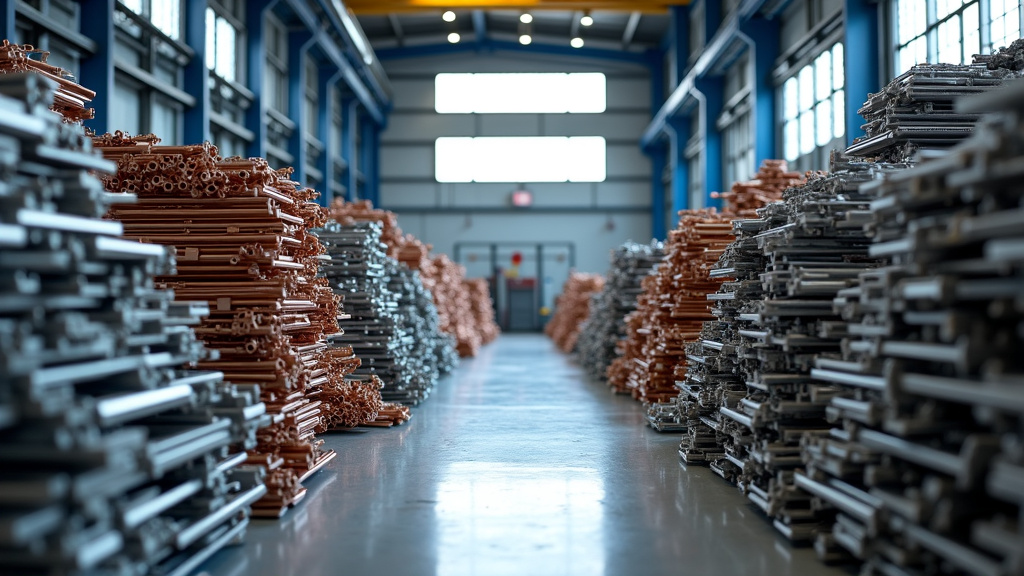
Metal disposal and recycling companies are essential in managing a wide range of metals, each requiring specific handling processes. These metals are generally categorized into ferrous, non-ferrous, and precious metals. Let’s examine how disposal companies manage these types to maximize recovery and minimize waste.
Ferrous Metals: The Workhorses of Recycling
Ferrous metals, which contain iron, are the cornerstone of many recycling operations. These metals are magnetic, making them relatively easy to sort. Steel, the most recycled material globally, is a prime example.
Common ferrous metals handled by disposal companies include:
- Steel (from appliances, vehicles, and construction)
- Cast iron (such as old pipes or cookware)
- Wrought iron (often found in outdoor furniture or fencing)
Recycling ferrous metals is highly efficient. For example, recycling steel uses 75% less energy than producing it from raw materials, offering significant environmental benefits.
Non-Ferrous Metals: Versatile and Valuable
Non-ferrous metals don’t contain iron and are valued for their distinctive properties. These metals are often more valuable per pound than ferrous metals. Disposal companies manage various non-ferrous metals, including:
- Aluminum (beverage cans, window frames)
- Copper (wiring, plumbing pipes)
- Brass (musical instruments, decorative items)
- Lead (car batteries)
- Zinc (galvanized steel coatings)
Non-ferrous metals can be recycled indefinitely without losing their properties. According to the Institute of Scrap Recycling Industries, recycling these metals is highly efficient and conserves natural resources.
Precious Metals: Small but Mighty
While less common in everyday recycling, precious metals are managed by specialized disposal companies due to their high value. These include:
- Gold (electronics, jewelry)
- Silver (photographic film, electrical contacts)
- Platinum (catalytic converters, laboratory equipment)
Recycling precious metals requires precise techniques to extract small quantities from complex items like electronic devices.
Understanding these metal categories helps consumers make informed recycling decisions. Whether it’s an old refrigerator (ferrous), discarded plumbing (non-ferrous), or outdated electronics (possibly containing precious metals), proper disposal ensures these valuable resources are not wasted. By partnering with knowledgeable disposal companies, we can all contribute to a more sustainable future through effective metal recycling.
The Metal Disposal Process: From Collection to Recycling
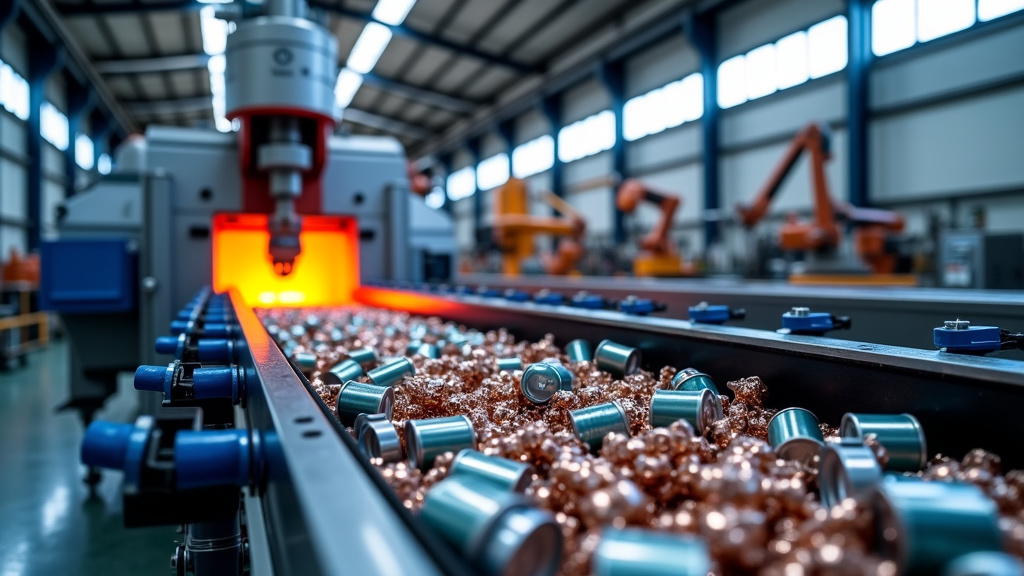
The journey of scrap metal from discarded waste to valuable resource is a fascinating transformation. As society faces sustainability challenges, innovative metal disposal companies are changing how we handle and repurpose these materials. Let’s explore the detailed process that gives new life to old metal.
Collection: The First Step Towards Rebirth
Imagine a rusted car fender, forgotten in a junkyard. Its journey begins when specialized collection teams sweep through neighborhoods, industrial sites, and scrapyards. These urban miners use advanced logistics software to optimize routes and maximize efficiency.
Large operations may employ drones equipped with cameras and sensors to survey scrapyards, identifying safety hazards and estimating inventory volumes. This bird’s-eye view ensures that no valuable metal escapes the collection net.
For smaller items, like the soda can you just finished, community recycling programs and local drop-off points play a crucial role. Every piece counts in the grand scheme of metal recycling.
Sorting: Where Technology Meets Metal
Once collected, the mix of metal enters a high-tech sorting facility. Gone are the days of purely manual sorting. Today, cutting-edge technologies dominate this phase, ensuring accuracy and efficiency.
Sensor-based sorting systems use X-ray fluorescence (XRF) and near-infrared (NIR) sensors to identify different metal types based on their unique signatures. It’s like giving the sorting machine superhuman vision!
Magnetic separators effortlessly pull out ferrous metals, while eddy current separators make non-ferrous metals jump off the conveyor belt. It’s a mesmerizing dance of metal and magnetism that would make any physics teacher proud.
Processing: Shredding the Past, Shaping the Future
With metals properly sorted, it’s time for transformation. Giant shredders, reminiscent of large food processors, tear apart metal pieces into manageable chunks. The cacophony of grinding metal is the soundtrack of rebirth in the recycling world.
For more delicate or valuable materials, hydrometallurgical processes offer a gentler touch. These chemical-based methods extract precious metals from electronic waste, ensuring that even the tiniest bits of gold in your old smartphone find new purpose.
Recycling and Repurposing: The Circle Closes
The final stage sees processed metals melted down in energy-efficient furnaces. Here, the boundaries between old and new blur as molten metal is cast into ingots, sheets, or directly into new products. That rusty fender? It might become part of a sleek new bicycle frame or a crucial component in a wind turbine.
Innovative companies are constantly finding new ways to repurpose metals. Some are experimenting with 3D printing technology to create custom parts from recycled metal powders, opening up possibilities for small-scale, on-demand manufacturing.
The metal disposal process is a testament to human ingenuity and our commitment to sustainability. As technology advances, we can look forward to even more efficient and environmentally friendly ways to give our discarded metals a second chance at life. So next time you toss a can into the recycling bin, remember – you’re not just disposing of waste, you’re contributing to a complex and fascinating cycle of renewal.
Technologies and Their Impact
An overview of advanced technologies used in the metal disposal process offers insights into their effectiveness and efficiency.
| Technology | Principle | Advantages | Challenges |
|---|---|---|---|
| X-ray Fluorescence (XRF) | Uses X-rays to excite electrons, emitting secondary X-rays characteristic of elements present | High precision; can sort heavy metals into individual high purity products | Limited with light metals like silicon and magnesium |
| X-ray Transmission (XRT) | Separates materials based on absorption characteristics of X-rays | Quick, precise, non-destructive | Interference from overlapping X-ray absorption spectra |
| Dense Media Separation (DMS) | Uses density to separate materials | Efficient for sorting larger or denser materials | Limited in distinguishing between distinct types of metals |
Benefits of Working with Professional Metal Disposal Companies
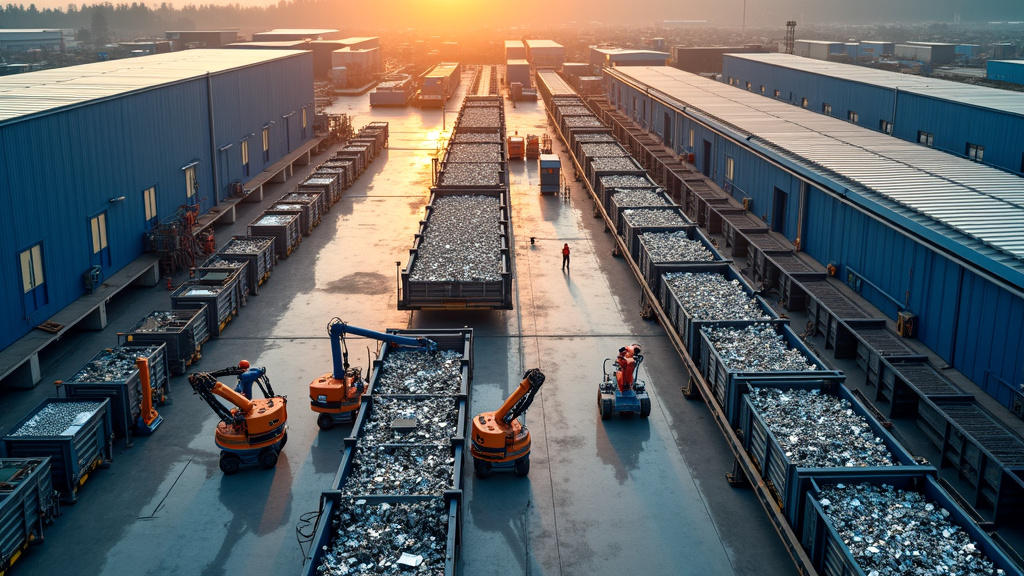
Proper metal disposal is a crucial aspect of responsible business operations. Professional metal disposal companies offer numerous advantages beyond simple waste removal.
Partnering with these specialized firms can transform your metal waste management approach, ensuring compliance, reducing risks, and contributing to a sustainable future.
Ensuring Regulatory Compliance
A significant benefit of working with professional metal disposal companies is their expertise in navigating complex regulations. These firms stay updated with changing environmental laws and industry standards, ensuring your business remains compliant.
By partnering with experts, you can avoid fines and legal issues from improper disposal practices. Professional disposal companies understand regulations like the Resource Conservation and Recovery Act (RCRA), which governs hazardous waste management in the U.S.
Moreover, these companies provide detailed documentation of your disposal activities, offering peace of mind and a clear paper trail for audits or inspections. This diligence protects your business and enhances your reputation as a responsible corporate citizen.
Mitigating Environmental Liability
Environmental liability is a concern for businesses dealing with metal waste. Improper disposal can lead to soil contamination, water pollution, and other ecological damage, resulting in hefty cleanup costs and long-term legal repercussions.
Professional metal disposal companies use advanced techniques and technologies to minimize environmental impact. They employ specialized equipment for handling, sorting, and processing metals, ensuring appropriate treatment for each material.
By entrusting your metal waste to experts, you reduce the risk of spills, leaks, or other environmental hazards. This proactive approach protects the environment and shields your company from potential liability claims and negative publicity.
Unlocking Cost Savings Through Recycling Programs
Many businesses overlook the financial benefits of proper metal disposal. Professional disposal companies often operate robust recycling programs that can turn waste into a valuable resource.
These firms can identify recyclable materials within your waste stream, potentially converting a cost center into a revenue generator. Metals like copper, aluminum, and steel can be recycled indefinitely without losing their properties, making them valuable commodities.
By participating in these recycling programs, you may receive compensation for your recyclable metals, offsetting disposal costs. Additionally, recycling typically requires less energy than producing new metals from raw materials, leading to lower environmental impact and potential cost savings.
| Benefit | Description |
|---|---|
| Cost Savings | Recycled metal often costs less than newly extracted metal, providing a competitive advantage and reducing price volatility. |
| Energy Conservation | Recycling metals significantly reduces energy consumption compared to mining and processing raw materials. |
| Job Creation | The recycling industry creates employment opportunities across various stages, supporting local economies. |
| Resource Security | Utilizing domestic sources of recycled metal reduces dependency on imported raw materials. |
Contributing to Sustainability Goals
In an era where corporate sustainability is increasingly important, partnering with professional metal disposal companies can boost your environmental credentials.
These companies often employ cutting-edge recycling and recovery technologies that align with circular economy principles. By maximizing the reuse and recycling of metals, they help conserve natural resources and reduce the need for energy-intensive mining and refining processes.
Many professional disposal firms provide detailed reports on the environmental impact of your waste management practices. These insights can be invaluable for sustainability reporting, helping you demonstrate your commitment to responsible resource management and reducing your carbon footprint.
Expertise in Handling Hazardous Materials
Not all metal waste is created equal. Some materials, particularly those containing heavy metals or radioactive elements, require specialized handling and disposal procedures. Professional metal disposal companies have the training, equipment, and facilities to safely manage these hazardous materials.
Their expertise ensures that dangerous substances are properly identified, segregated, and disposed of in compliance with strict safety regulations. This specialized knowledge is crucial for protecting your employees, the public, and the environment from potential harm.
Moreover, these companies can provide valuable guidance on best practices for storing and handling hazardous materials on-site, helping you improve safety protocols and reduce the risk of accidents or exposure.
How Okon Recycling Can Help with Metal Disposal
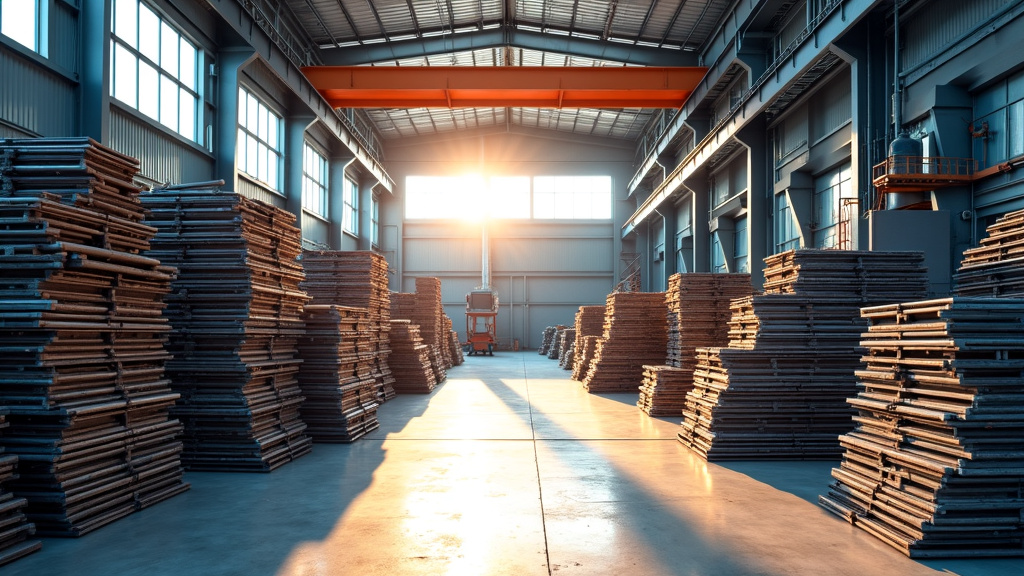
With over a century of experience in the metal recycling industry, Okon Recycling is a leader in metal disposal solutions. Our dedication to sustainability and resource conservation has established us as an industry authority, offering comprehensive services for both large-scale industrial clients and smaller projects.
At the core of Okon Recycling’s operations is a state-of-the-art, 20-acre facility equipped with cutting-edge technology to address diverse metal recycling needs. This advanced infrastructure enables us to efficiently process metal waste, ensuring valuable resources are recovered and repurposed rather than ending up in landfills.
One of the key benefits of partnering with Okon Recycling is our tailored approach to metal disposal. We recognize that each client has unique needs, and our team works diligently to customize our services accordingly.
Whether you’re a large industrial operation generating substantial metal waste or a smaller business with occasional disposal needs, we have the flexibility and expertise to provide effective solutions.
Choosing the Right Metal Disposal Partner for Your Needs
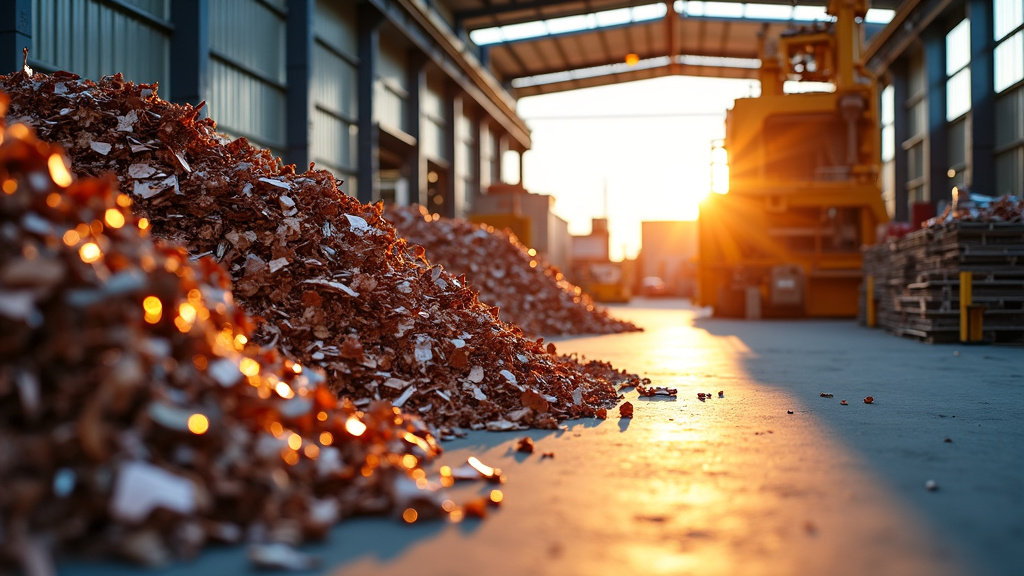
When evaluating potential metal disposal partners, several key factors should guide your decision. First, consider the company’s industry experience. A longstanding presence in the recycling sector often translates to deep expertise and a proven track record. Okon Recycling, with over a century of experience, exemplifies this kind of seasoned proficiency.
Next, assess the range of services offered. A comprehensive service provider can handle various types of metal waste, from ferrous to non-ferrous materials, ensuring all your disposal needs are met under one roof. Look for companies that offer additional value-added services such as on-site processing or parts harvesting, which can further streamline your waste management processes.
Environmental certifications and a demonstrable commitment to sustainability should also be high on your list of priorities. In an era where corporate responsibility is under scrutiny, partnering with a company that prioritizes eco-friendly practices not only ensures compliance but also enhances your sustainability profile.
To explore how Okon Recycling can tailor its services to meet your specific needs, contact Okon Recycling at 214-717-4083. Take the first step towards a more sustainable future for your business and the environment today.
